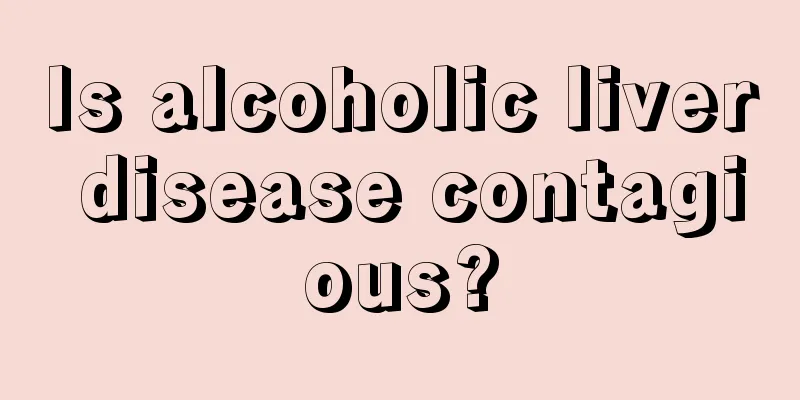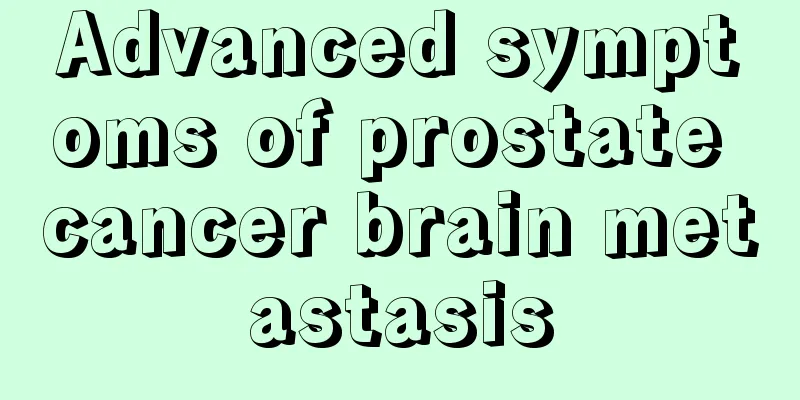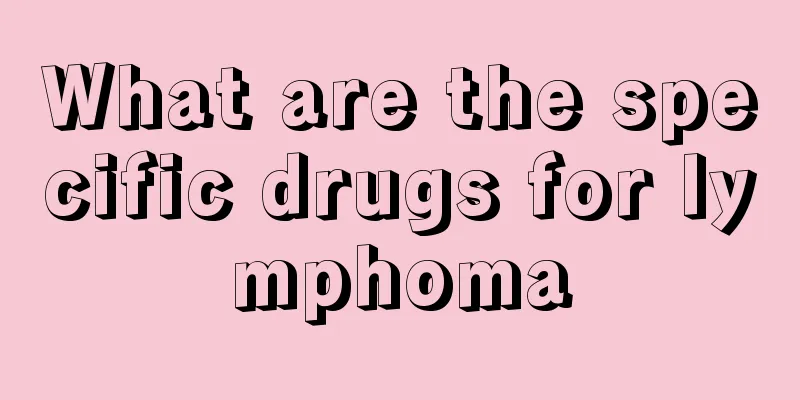Is alcoholic liver disease contagious?

|
Alcoholic liver disease is generally not contagious, but if you want to effectively reduce the impact of these diseases on your body, you should focus on treatment. First of all, you must completely quit drinking, because drinking can easily worsen the condition. Alcoholic liver disease is not contagious. It is a liver-damaging disease caused mainly by long-term and excessive drinking. Alcoholic liver disease is very harmful, but it is difficult to prevent it early based on symptoms because there are generally no symptoms and signs in the early stages of alcoholic liver disease. In addition, if alcoholic liver disease is not treated for a long time, it may even deteriorate into alcoholic cirrhosis in severe cases. However, alcoholic liver disease is caused by the patient's excessive drinking, not viral hepatitis, so alcoholic liver disease itself is not contagious. However, alcoholic liver disease must be treated after it is detected. (1) Completely stop drinking. Drinking can lead to the occurrence of many diseases, especially damage to the liver, which is the root cause of alcoholic liver disease. Therefore, drinking must be absolutely prohibited during the treatment of the disease and after recovery. In clinical practice, it is not uncommon for diseases to relapse or worsen due to inability to quit drinking, and we should take this as a warning. If you can completely quit drinking and eliminate the cause of the disease, you can improve the treatment effect, promote disease recovery, and prevent the recurrence, deterioration or pathology of the disease. (2) Adjust your mood. It is said in ancient medical books: Diseases of the liver and gallbladder are prone to stagnation and should be relieved and unblocked. If the patient is depressed, it will lead to disorder of Qi and imbalance of Yin and Yang, which may induce or aggravate the symptoms of the disease. At this time, the patient's family should help the patient overcome and eliminate negative emotions such as depression, doubt, fear, etc., build confidence in the treatment of liver disease, and promote recovery from the disease. More importantly, the patient should learn how to relieve his or her unhappiness in daily life to avoid adverse physical reactions caused by temperamental stagnation. (3) Pay attention to your diet. Patients with liver disease should eat more vegetarian and light food, avoid greasy food, be nutritious and easy to digest. They should eat small meals frequently and avoid eating raw, cold, sweet, greasy, spicy, hot, or phlegm-producing and dampness-inducing food. Salt has the disadvantage of causing water to stagnate, so people who suffer from alcohol bloating should be given a low-salt or low-salt diet. Those with bleeding tendency should avoid alcohol, tobacco and spicy, hot and scorching foods; those with obvious signs of dampness should especially avoid fatty and greasy foods; if there is mental disorder and confusion, meat intake should be strictly controlled and fresh liquid food should be supplied. Patients should also pay more attention to rest in normal times, combine work and rest, and keep a good mood, which will also be beneficial to their illness. |
<<: What should I do if my tonsils are congested?
>>: Symptoms of tendon injury, symptoms of tendon injury in the hand
Recommend
Taboo of massage
Massage is a method of treating diseases in tradi...
Can I drink ginger water if my gums are inflamed?
Ginger is a very important condiment in our lives...
What to do if glass fragments pierce your flesh
Glass objects are most likely to break if you are...
What is muscle congestion?
Congestion often occurs in the human body. For ex...
How to check for anorexia
In fact, when it comes to anorexia, it is often a...
Too much of this in the body can easily lead to lung cancer
Lung cancer is the only cancer that is increasing...
Men often touch this place to sober up and prevent drunkenness
As we all know, alcohol is harmful to the liver. ...
Principle of braces correction
Wire braces are a surgical care method that must ...
What to do if your skin becomes oily in summer?
Summer is generally a very dry season. People'...
Briefly explain the common symptoms of bone cancer
Bone cancer is a tumor disease that causes great ...
What are the symptoms of lumbar strain?
Lumbar muscle strain is a common disease in life....
Why is there pain in the yangguan of the waist
Standing for a long time or overwork will make th...
What does it feel like in the early stages of herpes simplex virus?
Viral infections can cause great harm to people&#...
What should I pay attention to after double eyelid surgery
Nowadays, more and more celebrities on TV screens...
The forehead is a little sunken
The shape of the forehead varies from person to p...









